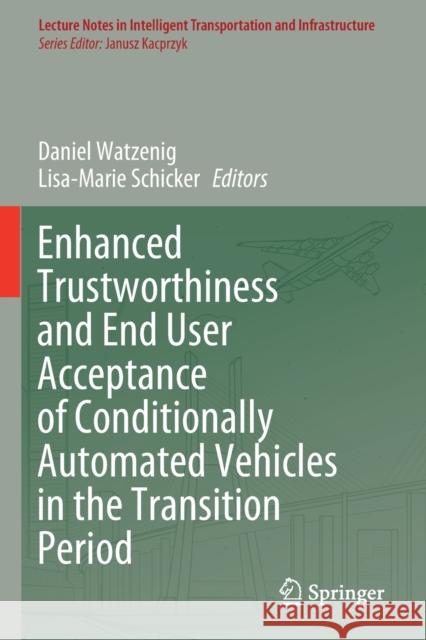Enhanced Trustworthiness and End User Acceptance of Conditionally Automated Vehicles in the Transition Period » książka
topmenu
Enhanced Trustworthiness and End User Acceptance of Conditionally Automated Vehicles in the Transition Period
ISBN-13: 9783030608637 / Angielski / Miękka / 2021 / 140 str.
Enhanced Trustworthiness and End User Acceptance of Conditionally Automated Vehicles in the Transition Period
ISBN-13: 9783030608637 / Angielski / Miękka / 2021 / 140 str.
cena 603,81
(netto: 575,06 VAT: 5%)
Najniższa cena z 30 dni: 578,30
(netto: 575,06 VAT: 5%)
Najniższa cena z 30 dni: 578,30
Termin realizacji zamówienia:
ok. 22 dni roboczych.
ok. 22 dni roboczych.
Darmowa dostawa!
Kategorie:
Kategorie BISAC:
Wydawca:
Springer
Język:
Angielski
ISBN-13:
9783030608637
Rok wydania:
2021
Ilość stron:
140
Waga:
0.20 kg
Wymiary:
23.39 x 15.6 x 0.76
Oprawa:
Miękka
Wolumenów:
01
Dodatkowe informacje:
Wydanie ilustrowane











